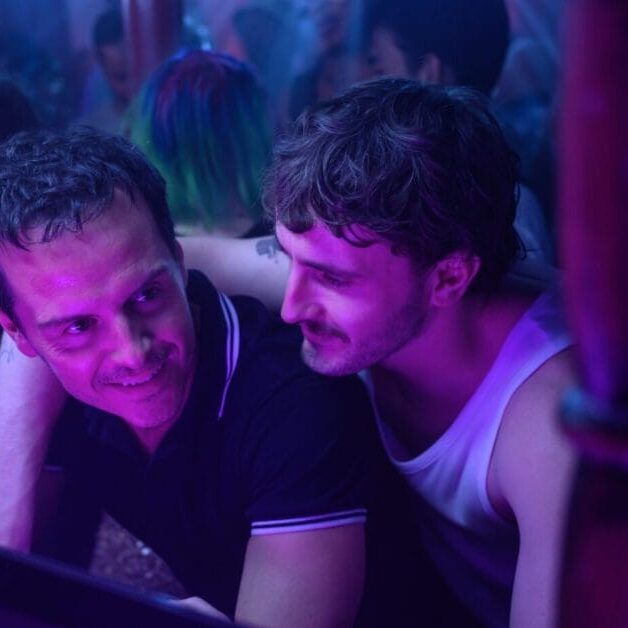
All of Us Strangers knows that queer love is messy
The gay tragedy of 2023 is a beautiful reminder that there’s more than one way to tell a story
Andrew Haigh’s All of Us Strangers (2023) is a gripping and emotional story about a man’s desire for acceptance and connection. Just like any good queer film, it’s entirely effective regardless of one’s sexual orientation but resonates differently if you’ve had certain experiences.
Experiences like coming out to your parents or muttering the words “I’m gay” to yourself for the first time, shocked you’ve finally said it out loud or feeling comfortable holding hands with your same-sex partner for the first time. Queer cinema at its best projects the unique experiences associated with queerness onto compelling and universal narratives. It makes relatable what can feel, at times, isolating.
All of Us Strangers certainly does this, chronicling the journey of Adam (Andrew Scott) as he locates and interacts with some version of his long-dead parents (Claire Foy and Jamie Bell). When his neighbour Harry (Paul Mescal) shows up at his door one night, this ghost story gains both a new character and a new complication.
When the credits roll, we can’t be sure how much, if any, of what we’ve just watched actually happened to Adam, but we can know for certain that it happened to us.
The two simultaneous stories are incredibly creative renderings of familiar stories: coming out and falling in love. How can the latter be impacted when the former is ripped away from you before you even know you need it? By making the two occur to Adam at the same, rather than in succession, Haigh reminds us that there’s no equation or formula here. It’s a refreshing case of messiness.
It’s a reminder that many queer people do in fact find love and have sex before coming out to those closest to them. That what happens in our minds, the conversations and negotiations we have with ourselves, is just as valid as what happens in the physical world. By not being afraid to make things confusing for the audience, Haigh depicts the absolute chaos inherent in the queer experience.
Many of the strongest entrants into the queer canon use non-traditional storytelling methods, including the triptych masterwork Moonlight (2016).
All of Us Strangers’ parallel storytelling method is a refreshing break from the traditional plotting that Hollywood’s queer cinema of late has relied on. Films such as Call Me By Your Name (2017), Portrait of a Lady on Fire (2019) and Bros (2022) follow traditional structures, which they each imbue with their own tales of queer love in 1980s Italy, 18th century France and 21st century New York, respectively.
I adore all three of those films and many others in the genre that use traditional storytelling methods. I also appreciate that the latter two opt for tragic, realistic endings. But All of Us Strangers manages to reach the dramatic heights of its contemporaries while also reminding us that if there is no right way to be queer, feel queer love or have queer sex, there certainly isn’t just one way to tell a queer story.
What else I’m watching
I have less room for this section than I did last week, so I’ll keep it brief. If you’re in the mood for some films about love, check out Passages (2022) on MUBI, Closer (2004) on Netflix or It Happened One Night (1934) wherever you can find it.






